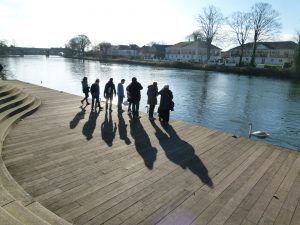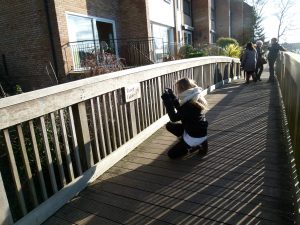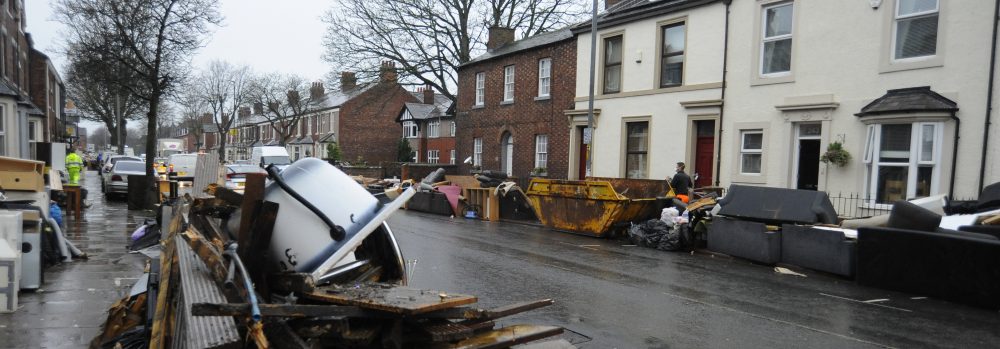The term ‘flood narratives’ here means illustrations of individual young people’s flood experiences. They show how qualitative research data can be used to develop exemplars which make visible the social consequences of flooding.

Chatting beside the River Thames
From conversations with flood-affected young people, held on walks around the local landscape and workshop sessions using performance and arts based activities, substantial material was gathered about how their lives were impacted by the disaster.

Gathering data for the Photo Talk session
This made it possible to piece together a number of personal histories of the flood, four of which are given here: Ben aged 12, Andrew 15, Sally 11 and Callum 12 (their ages at the time of working with them). What these personal histories show are the multiple and unexpected ways that a flood can alter and disrupt a young person’s biography.
In our six-minute film ‘the flood project’ Daniel says: ‘You feel like you’ve missed a year of your life’. But the four narratives here show that the effects are even more far reaching than this as they alter the possibilities and opportunities that young people might have had. Sometimes floods and emergencies open up new opportunities and experiences and this is acknowledged. But far more work needs to be done to understand the effect of living through, and with, extreme weather or other disasters for young people.
These personal histories have been analysed in depth in our published article: Displaced: critical insights from flood-affected children.
Please reference as: Flooding – a social impact archive, Lancaster University
